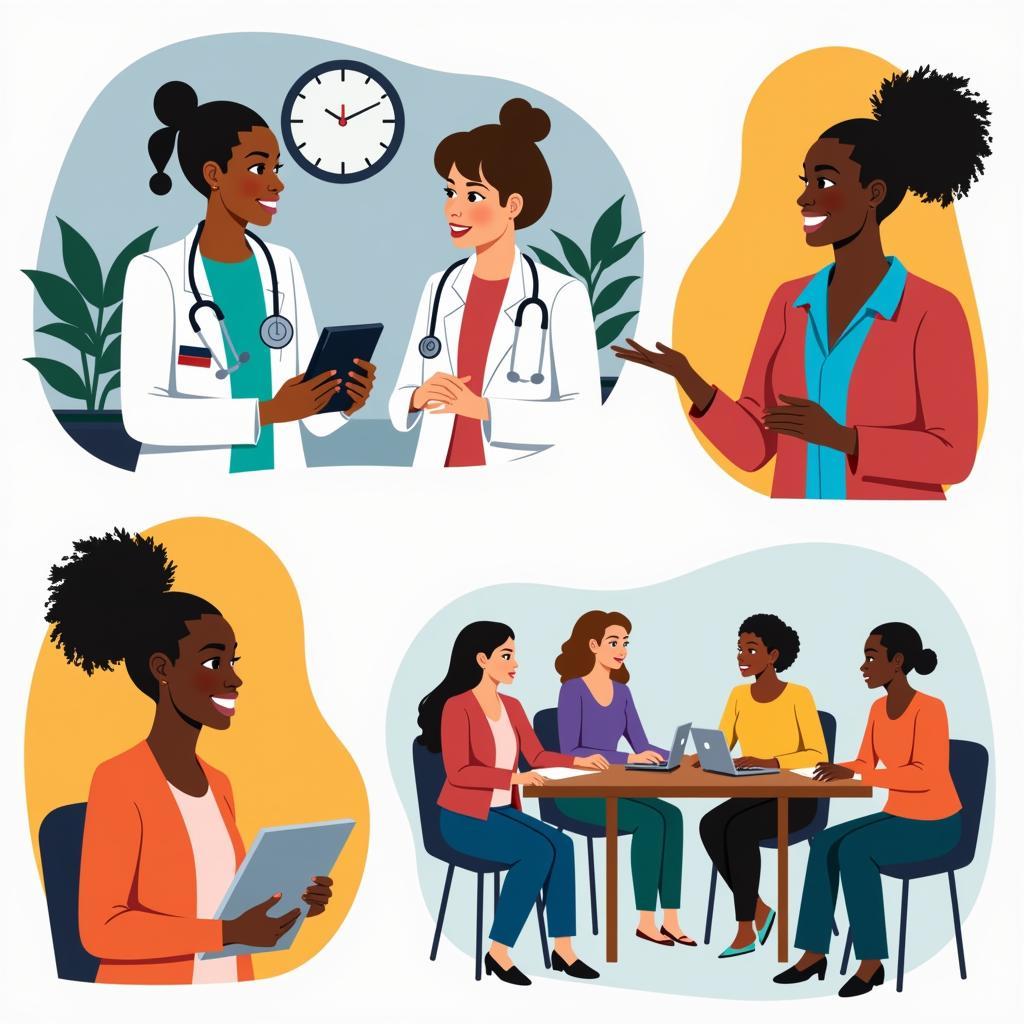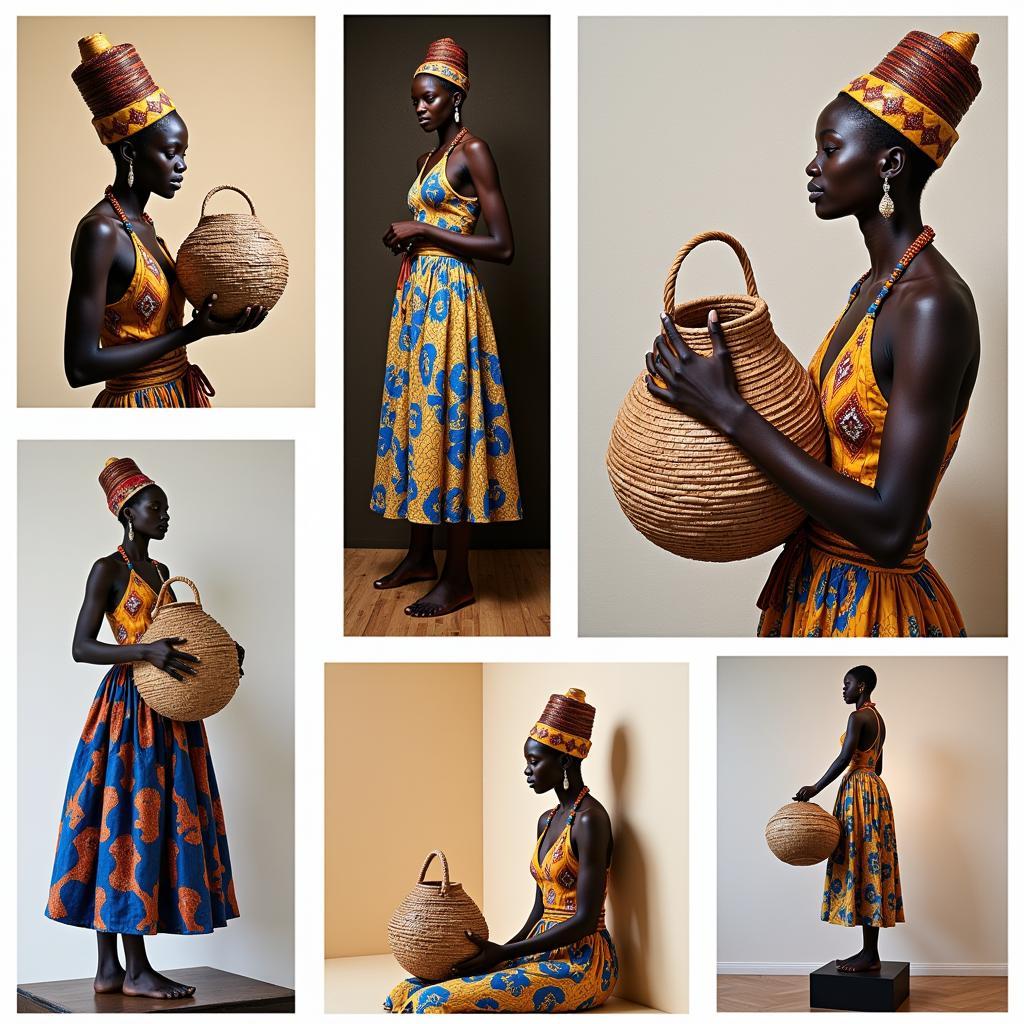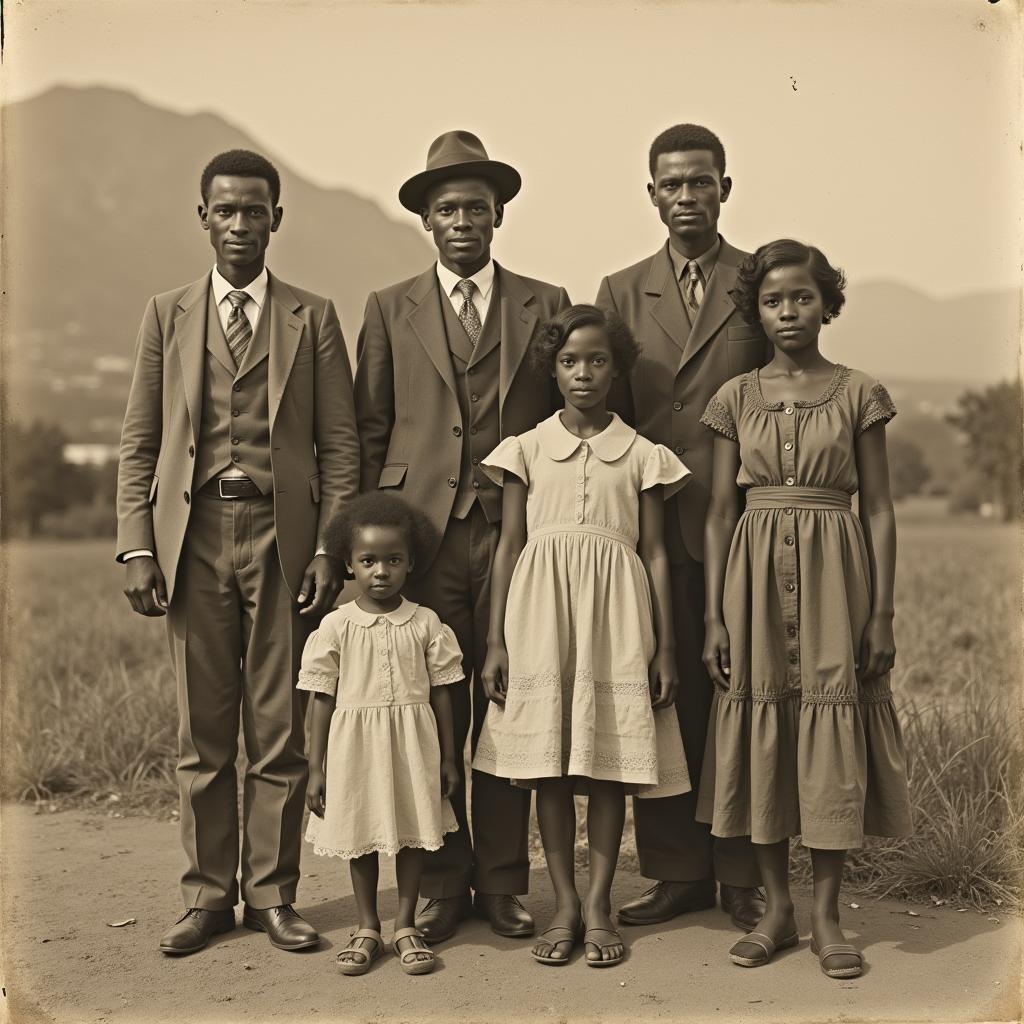Understanding African American Women’s Health
African American women’s health is a multifaceted topic encompassing unique challenges and strengths. This article will delve into the crucial aspects impacting their well-being, from systemic inequalities to culturally specific practices, offering a comprehensive overview of the factors influencing African American women’s health.
Key Factors Influencing African American Women’s Health
Several factors contribute to the health disparities faced by African American women. Understanding these factors is crucial for addressing the root causes and promoting better health outcomes. One significant factor is socioeconomic status. Lower income and limited access to quality education and employment opportunities can lead to poorer health outcomes. african american women education is critical in breaking this cycle.
Another contributing factor is systemic racism. This manifests in various forms, including implicit bias within the healthcare system, leading to inadequate care and delayed diagnoses. Additionally, environmental factors such as exposure to toxins and lack of access to healthy food options can disproportionately affect African American communities.
 African American Women Accessing Healthcare
African American Women Accessing Healthcare
Addressing the Specific Health Concerns of African American Women
African American women experience higher rates of certain health conditions compared to other demographic groups. For example, they are more likely to develop heart disease, stroke, and diabetes. These conditions are often linked to factors like high blood pressure, obesity, and a family history of the illness. Addressing these underlying factors is crucial for prevention and effective management.
Another significant concern is maternal mortality. African American women are significantly more likely to die from pregnancy-related complications than white women. This disparity is rooted in a complex interplay of factors, including implicit bias in healthcare, limited access to quality prenatal care, and underlying health conditions.
Promoting Wellness and Empowerment in African American Women
Empowering African American women to take control of their health requires a multi-pronged approach. Promoting health literacy is essential. This involves providing accessible information about healthy lifestyle choices, disease prevention, and navigating the healthcare system. Building stronger support systems within communities can also play a vital role. This can include support groups, mentorship programs, and community-based health initiatives.
Additionally, advocating for policy changes that address systemic inequalities is crucial. This includes advocating for affordable healthcare, access to healthy food options, and addressing environmental injustices.
What are the unique health challenges faced by African American women?
African American women experience unique challenges related to systemic racism, implicit bias in healthcare, and socioeconomic factors, leading to disparities in various health outcomes.
How can we improve maternal health outcomes for African American women?
Addressing implicit bias in healthcare, ensuring access to quality prenatal care, and addressing underlying health conditions are crucial for improving maternal health outcomes.
african cornrows designs can be a beautiful expression of cultural pride and identity.
The Role of Culture and Tradition in African American Women’s Health
Cultural and traditional practices can significantly influence health behaviors. Understanding these influences is crucial for developing culturally sensitive interventions. For instance, certain traditional dietary habits may contribute to higher rates of certain conditions. Similarly, cultural beliefs surrounding mental health can impact help-seeking behaviors.
Addressing these cultural nuances is essential for developing effective health promotion strategies. By respecting and incorporating cultural values, healthcare providers can build trust and improve communication, leading to better health outcomes.
Dr. Anika Sharma, a leading expert in women’s health, states, “Culturally sensitive healthcare is not just about providing translated materials; it’s about understanding and addressing the unique needs and experiences of diverse populations.”
african american short hair cuts are becoming increasingly popular.
Professor Imani Jackson, a sociologist specializing in health disparities, adds, “Addressing systemic inequalities is crucial for achieving health equity for African American women. We need to dismantle the barriers that prevent them from accessing quality healthcare and living healthy lives.”
african american short bob hairstyles offer a stylish and versatile option.
african hot mom celebrates the beauty and strength of African mothers.
In conclusion, understanding and addressing the multifaceted factors impacting African American women’s health is crucial for achieving health equity. By focusing on prevention, culturally sensitive care, and addressing systemic inequalities, we can empower African American women to live healthier, fulfilling lives.
FAQ
- What are the leading causes of death among African American women?
- How does access to healthcare affect African American women’s health?
- What are some effective strategies for promoting healthy eating habits in African American communities?
- How can we address the mental health needs of African American women?
- What are some resources available for African American women seeking health information and support?
- How can we involve community leaders in promoting health equity for African American women?
- What are the latest research findings on African American women’s health?
When you need assistance, please contact us:
Phone: +255768904061
Email: kaka.mag@gmail.com
Address: Mbarali DC Mawindi, Kangaga, Tanzania.
We have a 24/7 customer support team.




